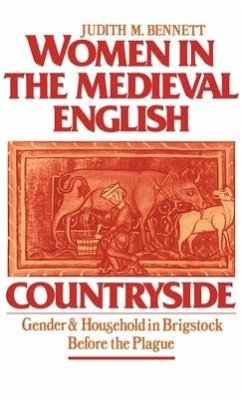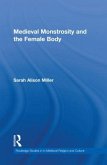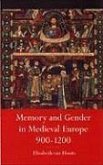In this book, Judith Bennett addresses the gap in our knowledge of medieval country women by examining how their lives differed from those of rural men. Drawing on her study of an English manor in the early-fourteenth century, she finds that rural women were severely restricted in their public roles and rights primarily because of their household status as dependents of their husbands, rather than because of a notion of female inferiority. Adolescent women and widows, by virtue of their unmarried status, enjoyed greater legal and public freedom than did their married counterparts.
Unlike most histories of European women, which have typically focused on the 19th and 20th century elite, this study reconstructs the public lives of peasant women and men during the six decades before the Black Death of 1348-49. Drawing on the extensive records of the forest manor of Brigstock, Judith Bennett challenges the myth of a "golden age" of equality for medieval men and women. Instead, she ably shows that women faced profound political, legal, economic, and social disadvantages in their dealings with men. These disadvantages stemmed more from women's household status as dependents of their husbands than from any notion of female inferiority; consequently, adolescents and widows participated much more actively than wives in the public life of Brigstock. Women in the Medieval English Countryside demonstrates not only how enduring the subordination of women has been throughout English history, but also how firmly that subordination has been rooted in the conjugal household.
Hinweis: Dieser Artikel kann nur an eine deutsche Lieferadresse ausgeliefert werden.
Unlike most histories of European women, which have typically focused on the 19th and 20th century elite, this study reconstructs the public lives of peasant women and men during the six decades before the Black Death of 1348-49. Drawing on the extensive records of the forest manor of Brigstock, Judith Bennett challenges the myth of a "golden age" of equality for medieval men and women. Instead, she ably shows that women faced profound political, legal, economic, and social disadvantages in their dealings with men. These disadvantages stemmed more from women's household status as dependents of their husbands than from any notion of female inferiority; consequently, adolescents and widows participated much more actively than wives in the public life of Brigstock. Women in the Medieval English Countryside demonstrates not only how enduring the subordination of women has been throughout English history, but also how firmly that subordination has been rooted in the conjugal household.
Hinweis: Dieser Artikel kann nur an eine deutsche Lieferadresse ausgeliefert werden.








